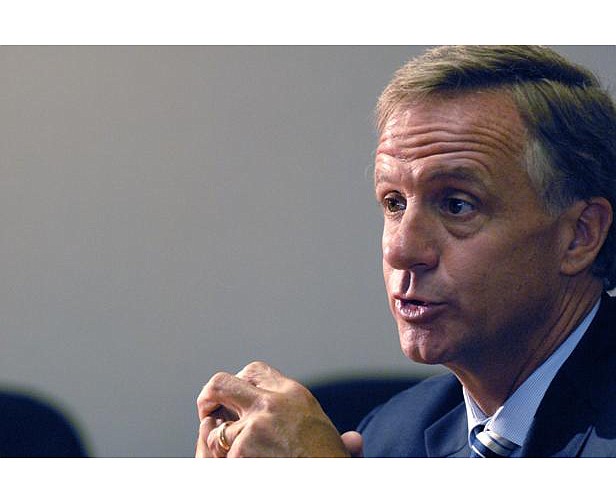NASHVILLE - Republican Gov. Bill Haslam has washed his hands of choosing what benefits will be required in basic health insurance plans sold to individual Tennesseans and small businesses under the federal health care law.
In deciding not to act, Haslam has turned over to the Obama administration a decision that will affect hundreds of thousands of people and small companies.
A number of Republican and some Democratic governors in other states have done the same. Unlike many, Haslam hasn't shared anything with the general public, instead serving notice of his decision in a letter dated Sunday to U.S. Health and Human Services Secretary Katherine Sebelius.
In it, the governor criticizes the 2010 Affordable Care Act and says that after months of reviewing what he complained was vague federal guidance, "I have decided not to select such a plan for Tennessee."
The deadline for states on how they will define "essential health benefits" was Monday. But some observers question how hard a deadline that actually is.
A copy of Haslam's letter to Sebelius and other HHS officials was obtained by the Times Free Press.
In its efforts to extend health coverage to most Americans, the law requires private health insurers selling policies to individuals and smaller businesses to begin offering in 2014 the "essential health benefits" package comprising 10 categories.
The list includes hospitalization, emergency care, maternal care and prescription drugs.
Federal officials limited choice of so-called "benchmark" benefit plans to one of several options. They include selecting one of the three largest plans covering small businesses, state employee plans, in-state federal employee plans or the largest health maintenance plan serving commercial customers.
According to a list of "frequently asked questions," HHS last year said if states don't select an essential health benefits plan, the "default" benchmark plan "would be the largest small group market product in the State's small group market."
That would appear to be in Tennessee the small group plan benefits offered by Chattanooga-based BlueCross BlueShield of Tennessee, although HHS qualifies that by saying anything lacking could be picked up from the next largest plan.
Haslam spokesman David Smith and state Commerce and Insurance Department spokesman Christopher Garrett refused to comment directly on BlueCross, saying only the decision is now up to the federal government.
Smith said Haslam still hasn't decided whether to participate in creating the law's anticipated health care exchanges that will give hundreds of thousands of uninsured Tennesseans the opportunity to find coverage. The deadline for that, which could be left to the federal government too, is Nov. 17.
Haslam also hasn't decided on another provision that would extend Medicaid coverage to as many as 300,000 or so low-income Tennesseans. The Medicaid program in Tennessee is operated as TennCare. The essential health benefits plan would control what type of plans any would-be new enrollees see.
"The subjects of insurance exchanges and Medicaid expansion are separate and being handled individually, and, yes, you can make those decisions separately without an [essential health benefits] package," Smith said in an email.
Chris Coleman, an attorney with the Tennessee Justice Center, an advocacy group, said he is still hoping "that Gov. Haslam and the other decision makers in state government will work with the federal government to select a benefits package that helps all Tennesseans, and there's nothing in the letter that makes me not think that's the end goal of the state."
The state will have even "less flexibility in defining a state health benefits plan if they simply allow the state to go to a default," he said.
Coleman said HHS didn't "give a lot of guidance" on the issue.

